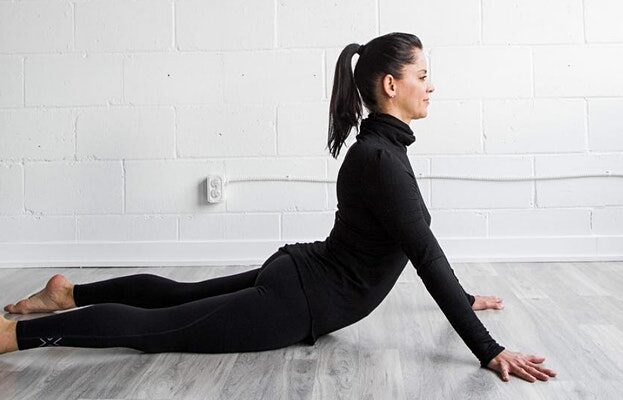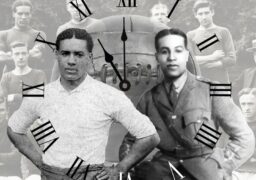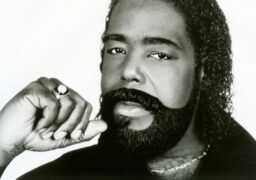
A brief introduction to Yin Yoga:
Yin yoga works with the fascia (connective tissue) of the body. These tissues bind together all that you are, and they hold everything in place, and as such, our postural habits are ‘held’ in our fascial matrix.
Yin Yoga specifically targets these tissues and has a profoundly positive impact on our postural tendencies. Our unique patterns of movement are determined by our activities, sleeping patterns, how we think, past accidents, surgeries and our interaction with all the people in our lives. As we move away from an anatomically neutral position, we begin to feel pain in our joints. Manipulating our connective tissue is one of the best ways to restore healthy alignment and to reduce discomfort.
Traditional yoga does effect the fascial network and is an important compliment to the Yin practice. Yin yoga ‘unpins’ the holding patterns and more Yang styles of yoga like Ashtanga help the student to develop the strength to maintain and support their new healthy postural habits. Without the ‘unpinning’ of old holding patterns, students tend to practice more dynamic styles of yoga with all of their unconscious compensations. Practising like this can lead to a worsening of misalignments and can increase physical discomfort.
This course is appropriate for:
Yoga teachers, social workers, physiotherapists, chiropractors, psychotherapists, life coaches, psychologists, massage therapists, reiki practitioners, Rolfers, and structural integration therapists.
Angela is an E-500 Certified Yoga Teacher with the Yoga Alliance in America. All graduates of Angela’s courses can count the hours towards their continuing education if they are registered with this organisation.
Objective of the Yin Yoga Teacher Training Course:
The objective of this Yin Yoga Teacher Training is to develop a strong foundation in the psychology of yoga and deepen your understanding of the psycho-somatic relationship. This teacher training course will help you explore ways to develop your students and to cultivate your own practice of Yin Yoga (and, indeed, all yoga!)
Learn three concise and easy to follow body maps from which you will be able to build thoughtful, therapeutic and interesting classes:
1. Chakra Theory (psychology of Indian Yoga)
2. Meridian Theory (psychology of Traditional Chinese Medicine)
3. Myofascial Trains (the hardware that carries the mental and emotional vibrations through our physical make-up)
Course Content:
Theory and Philosophy (Energetic Anatomy)
• What is Yin Yoga?
• The history of Yin Yoga
• Yin and Yang Theory – Based on Traditional Chinese Medicine (TCM)
• Organ Meridian Theory – Learn the physical, mental and emotional qualities of the twelve main organ meridians (TCM)
• Chakra Theory – Study the qualities and attributes of the seven main chakras that reside along your main energetic channel.
Anatomy
• Study the nature of fascia and the location of the 12 myofascial lines. Compare how these trains correspond to both the meridian system in Traditional Chinese Medicine as well as the Chakra system of traditional yoga
• Learn the defining principles of Yin Yoga that allow you to safely manipulate your fascial fabric.
Practice
• Learn all of the Yin asanas (postures), their variations and how best use props to support each pose
• Meditation – The art of concentration (Dharana). To safely manipulate fascia, Yin asanas are held for 3 – 10 minutes. Here the student has an opportunity to explore the art of stillness amid this physical intensity. Yin yoga can be a wonderful bridge into a steady meditation practice, even for the busiest of minds.
• Pranayama – Learn the ‘Abandha’ breath and how to work with the Bandhas in a Yin way.Sequencing
• Learn to sequence classes that take into consideration your students physical, mental and emotional condition by applying your knowledge of meridians and chakras to the manipulation of the myofascial lines.
More about Yin Yoga:
Who is Yin Yoga good for?
Postures are set up slowly and with a lot of attention and care to injuries and sensitive places. So Yin yoga is good for everybody! Whether you are a super fit athlete, a senior battling aches and pains or a stiff office worker – everyone can work together – in the same class.
Yin yoga classes are often the busiest classes on schedules – you don’t have to choose between slow or fast, dynamic or easy – everyone will be challenged and get what they need in one place with one teacher. There are three paradigms that you can use to design a class – so pending on your audience you can pick and choose what ‘map’ you use.
Athletes
Yin yoga helps to undo the postural mis-alignments that come from repeating a specific movement over and over again — like kicking a ball or swinging a racket. Most athletes stop playing their sport because of problems with their joints.
Yin Yoga helps to realign bones where they meet ensuring a smooth articulation of bones at joints. An athletes career can be extended significantly practicing in the Yin way.
Seniors
As we get older the spaces between our joints are diminished because of poor postural habits, repetitive movements, the force of gravity, negative emotional and mental states and the inevitable drying up of our tissues that comes with old age. As the spaces get smaller at joints we experience joint pain that often becomes arthritis.
Yin Yoga creates space at joints – alleviating the discomfort that almost all elderly people experience.
Office Workers
Sitting is the new smoking! Exercising the mind and ignoring the body is an all too common practice in office workers and academics alike. When we hold a siting position for extended periods of time we become ‘frozen’ in the shape. Shoulders roll forward, spines round and our hips become tight. The results are ‘carpel tunnel syndrome, back pain, arthritis, osteoporosis and poor circulation. Not to mention all the mental stress that manifests physically that is all too common amongst the ‘office’ population.
Yin Yoga helps to ‘undo’ the holding patterns that become ingrained while sitting at a work station. Old aches and pains can be released once and for all by countering the ‘sitting’ position with yin positions. New postural habits will emerge and pain will be a thing of the past!
Trauma Survivors
In Traditional Chinese Medicine (TCM) the meridians that carry Qi through the body also house our emotions. This course will teach you the mental, emotional and physical qualities of the organ meridians, and teachers will learn how to manipulate and release emotional residue through Yin Yoga.
There is a deep meditative quality to the practice because poses are held for a number of minutes. How the mind affects our physical body becomes apparent when we work in this way. Deep emotional releases are a common part of the practice for those that need them. We will also study the Indian Chakra system which mirrors the TCM model. These two systems are the ‘software’ or ‘maps’ that we will also study. We will also look at the ‘hardware” in the way of Western Anatomy, the nature of fascia and how the myofascial trains connect all the systems of your body and how they define your posture.
Stressed Out Students!
As mentioned above, we hold our emotional patterning in our fascia, so when we bring our attention to this tissue and create space and room for movement we ‘undo’ ourselves. We know no better way to ground a student, help them let go of negativity and shift their perspectives than the practice of Yin Yoga.
About Angela:
Angela Jervis-Read E-RYT 500 has been immersed in the world of yoga since 1998. She stumbled upon the science while seeking out a way to manage her chronic back back.
Within a only a few months of practising her physical pain and attitude towards life had shifted dramatically. It was at this time, that she realized, that her mission in life was to spread the magic of yoga around the world.
Known as a pain specialist , Angela’s intuitive nature fuels her ability to manipulate the relationship between mind and body. She holds a private practice in Toronto, where she works one-on-one with people suffering from PTSD, depression, anxiety, arthritis, repetitive strain injuries and other mental and physical discomforts. Compassion and kindness define her approach, setting her clients at ease — allowing for the greatest potential for change.
Sought out by studios around the globe, Angela leads international teacher trainings, retreats and workshops in the both the yin and vinyasa traditions.
She contributes to health and wellness magazines, has appeared on national television networks, speaks at conferences and is currently completing her first book.
Inspirations both and on and off the mat are: Jeannine Woodall, Hali Schwartz, Sarah Powers, Tom Myers and Rishi Sudhir of the Sampoorna Yoga School in Goa – India.
Any questions?
Please don’t hesitate to get in touch with any questions that you may have: 07743513225 // holly@yogahero.co.uk








